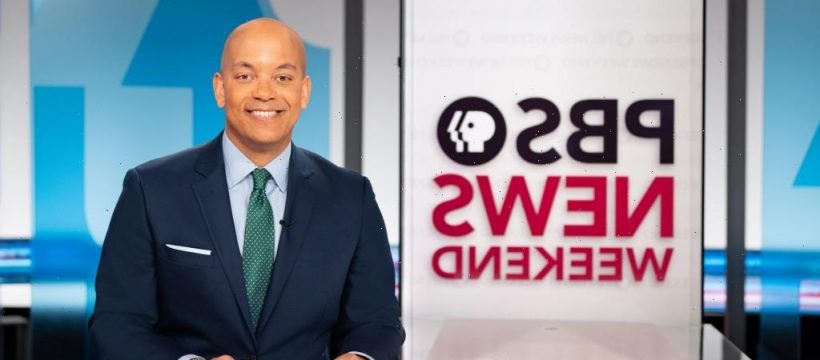After more than eight years, the weekday and weekend editions of PBS’ signature evening newscast are finally getting together.
Washington’s WETA has long produced the venerable “PBS NewsHour,” the show once known as the “McNeil-Lehrer Report” and now anchored by Judy Woodruff, while New York’s WNET has since 2013 produced the Saturday and Sunday editions of the program. Starting April 2, all seven days will be under the auspices of WETA, with Geoff Bennett, a former NBC News and MSNBC correspondent and anchor who was named the program’s chief Washington correspondent in November, taking the reins of a re-titled half-hour “PBS News Weekend.”
“I think we are going to build on ‘NewsHour’s’ traditional mix of news and interviews and in-depth features,” says Bennett, in an interview. At the same time, the weekend shows will leave room for figures from the worlds of culture and the arts. “Every week, we will bring on someone talking about a book they are writing or a show they are beginning.” Conversations with Sheryl Lee Ralph from ABC’s’ “Abbott Elementary” and singer Daryl Hall are in the works.
Arts coverage, however, is a byproduct of the process. WETA is also taking over the weekends as part of a bid to streamline resources and refocus “NewsHour,” which also serves as PBS’ primary hub of breaking news and special news production. Weekday and weekend programs can make use of the same group of correspondents, and Bennett can get around the nation’s capital more easily when national news breaks. His New York-based predecessor, Hari Sreenivasan, will contribute to PBS’ “Amanpour,” that journalist said via a Twitter post, and plans to pitch program ideas over time.
“Washington Week,” the Friday-evening public-affairs roundtable moderated by Yamiche Alcindor, is also a WETA production and will share resources with the “NewsHour” programs. “NewsHour” recently hired Rachel Wellford, a “NewsHour” veteran who had decamped to WarnerMedia’s CNN Plus, to serve as executive producer of its weekend broadcasts.
Having a more direct connection between the various programs makes the news easier to manage, says Sara Just, senior executive producer of “NewsHour,” in an interview. “Weekends are a time when two things are important to remember. One is that news still happens, and we want to be able to jump on it with the same urgency and quick-response reporting,” she says. “And often, news doesn’t happen on the weekends, and that’s a time for reflection, to talk about things coming up, as well as stories related to arts and culture and the world we live in.”
Among some of the weekend program’s other potential features are interviews with lawmakers might come on to discuss legislation for which they want to gain support, and a roundtable to help viewers get ready for the week to come.
Bennett continues to work as a contributor to NBC News and MSNBC, and says he appreciates the chance to keep his feet both in the quicker-paced world of cable news as the more reflective and analytical venue of public media.
He says he has always wished to cover national affairs, working his way up from a desk assistant position during Peter Jennings’ tenure on ABC’s “World News Tonight” to a post as an editor and producer at NPR. He eventually started reporting stories on air and found his way to MSNBC and NBC News.
After working for so many different outlets, Bennett says he understands “NewsHour” has a certain “value proposition” no matter what day of the week it’s being viewed. “No place has the time and the space available to delve in as deeply as we will.”
Source: Read Full Article
